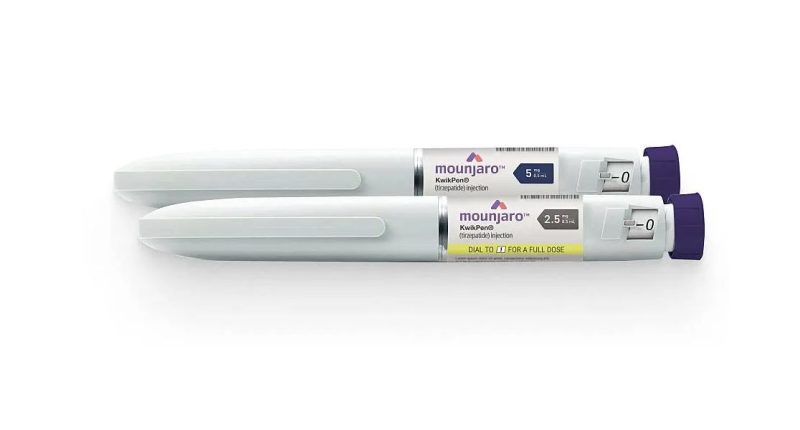The use of tirzepatide to treat type 2 diabetes has been linked to a lower risk of mortality and heart and kidney problems compared to another common drug also used to treat the condition.
Researchers looked at past data to compare outcomes among people treated with either with tirzepatide (a dual glucagon-like peptide 1 and glucose-dependent insulinotropic polypeptide receptor agonist), or GLP-1 RA (glucagon-like peptide 1 receptor agonist treatment).
The authors concluded: “In this study, treatment with tirzepatide was associated with lower hazards of all-cause mortality, adverse cardiovascular events, acute kidney injury, and adverse kidney events compared with GLP-1 RA in patients with type 2 diabetes.
- Tirzepatide may need to be long-term to maintain initial weight loss
- New drug helps people lose almost a fifth of their weight
“These findings support the integration of tirzepatide into therapeutic strategies for this population.”
Researchers led by Min-Hsiang Chuang, from the Chi Mei Medical Center in Taiwan, analysed U.S. data which included 14,834 patients treated with tirzepatide and 125,474 treated with GLP-1 RA.
All the patients were aged 18 or older, had type 2 diabetes and received treatment between June 1, 2022, and June 30, 2023.
The aim was to look at outcomes including all-cause mortality, major heart events, kidney events, acute kidney injury, and major adverse kidney events.
A key finding was that 0.6% of patients in the tirzepatide group died after a median follow-up of 10.5 months, compared to 1.1% of patients in the GLP-1 RA group.
- Man hospitalised after weight loss drug triggered life-threatening problems
- Mounjaro comes out top in battle of the weight loss drugs
In comparison to GLP-1 RA, tirzepatide was also linked to greater decreases in glycated haemoglobin and body weight.
The researchers added: “These insights advocate for the integration of tirzepatide into therapeutic strategies for managing type 2 diabetes and highlight its potential to enhance current clinical practice.”
Read the study in Jama Network.




